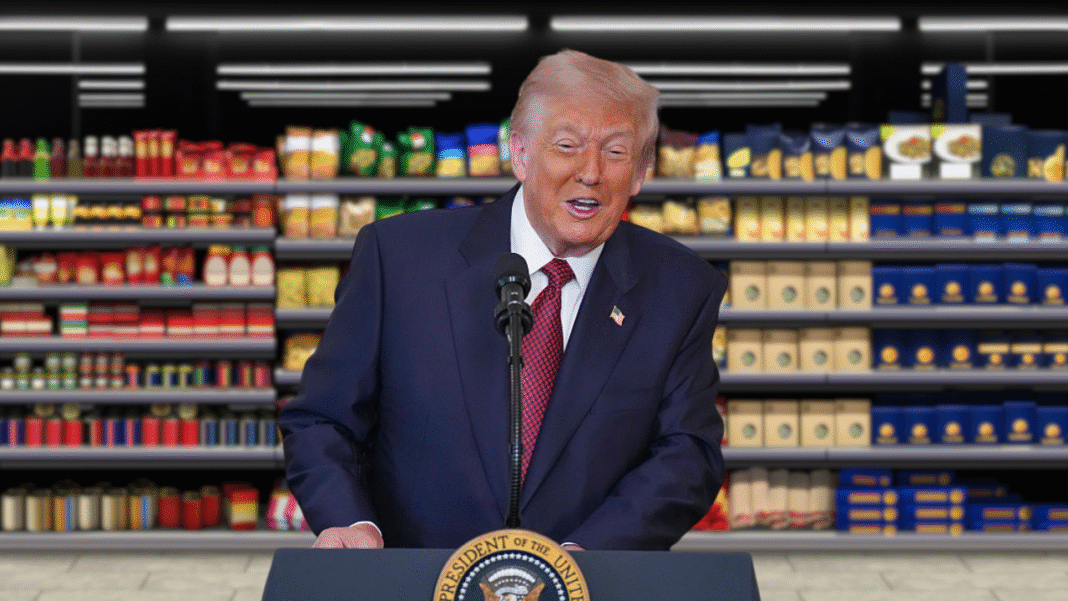The Aftermath of Election Defeats: Trump and the Vocabulary of Affordability
The recent general elections saw Republicans facing significant setbacks across the board, prompting a passionate response from former President Donald Trump. In the wake of these losses, Trump has pivoted to a linguistic analysis of the political landscape, focusing on a term he believes could spell the difference for his party in future elections: “affordability.”
Trump’s Take on Election Results
Following the disappointing outcomes, Trump appeared to attribute the Republicans’ poor performance to their failure to emphasize certain economic themes. “They have this new word called affordability, and [Republicans] don’t talk about it enough,” he stated during an interview with Fox News. This assertion reflects Trump’s ongoing strategy of identifying linguistic and rhetorical gaps within his party’s platform, suggesting that Democrats effectively utilized this vocabulary during their campaign.
The Power of Affordability in the Democratic Campaign
In particular, the term “affordability” resonated strongly in areas like New York City, where now-Mayor-elect Zohran Mamdani adopted the rhetoric to push his agenda. Mamdani advocated for taxing the wealthy to alleviate the financial burdens on everyday citizens concerning groceries, child care, and housing—issues that strike a chord with many voters. The significance placed on affordability illustrates a broader concern among constituents who are increasingly feeling the pinch of rising living costs.
An Old-Fashioned Word with New Relevance
Trump’s commentary didn’t stop with affordability. During a press interaction, he mused over the word “groceries,” describing it as “an old-fashioned word, but it’s a beautiful word.” This assertion underscores his recognition that, despite being a simple term, the reality behind it affects millions of families grappling with increased food prices. Despite his nostalgic take, though, the facts tell a different story.
Misrepresentation of Economic Conditions
In his remarks, Trump also claimed that grocery and energy prices had decreased, raising eyebrows given the current economic climate. The reality, as evidenced by a CBS News analysis, indicates that food prices have surged approximately 18.2% since January 2022, with overall inflation presenting ongoing challenges for American households. Such discrepancies highlight the limitations in Trump’s narrative, as he navigates the complexities of economic discourse in the face of mounting evidence.
Understanding the Economic Impact of Tariffs
The rising costs are often linked to the trade policies implemented during Trump’s administration, specifically the tariffs on imports, which have been cited as a key factor in the unstable U.S. market. These tariffs not only led to increased prices on numerous goods but have also contributed to a climate where businesses struggle to sustain operations, ultimately resulting in layoffs across various sectors.
The Disproportionate Effects on Black Households
The economic fallout from these policies carries a disproportionately negative impact on Black households. Reports from the Center on Budget and Policy Priorities indicate that the harsh effects of tariffs and tax policies have compounded challenges for communities of color. The report asserts that their agenda disproportionately hurts low- and moderate-income families, adding layers of complexity to the economic landscape that too often gets overlooked in mainstream discourse.
The Complex Dialogue Ahead
Trump’s focus on vocabulary like affordability reflects a broader struggle within the Republican party to articulate an effective economic narrative that resonates with voters. As the political landscape evolves, it will be essential for both parties to navigate these conversations thoughtfully, taking into account the real economic challenges that affect constituents daily.
In the aftermath of the recent elections, the dialogue surrounding words like affordability could be pivotal in shaping future political strategies as both sides respond to the ever-shifting views of the electorate and the pressing financial concerns that define their everyday lives.



